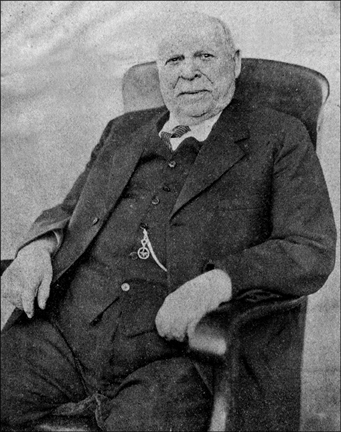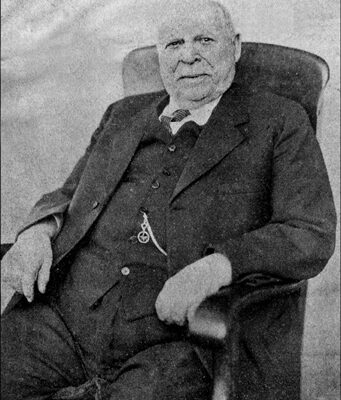On Wednesday morning, November 25, 1931, former governor, Alfred Alexander Taylor passed away. The next morning, newspapers across the country broadcast the breaking news proclaiming, “Uncle Alf is Dead.”
The grand old man of the Republican Party in Tennessee had gone to his eternal rest, stilling a deep voice that thrilled and stirred thousands of people over two generations. He joined a long list of mortals who were forever lodged in the memories of a people.

Former Tennessee Governor, Alf Taylor
Outside of the state were people who knew him impersonally as political leader, congressman, and state governor with political exploits that spanned his long and active life. Inside the state, the congenial statesman was more of a friend, fellow townsman, neighbor and public-spirited citizen of his community. Locals described Alf as one who held dearer to his heart the esteem and friendship of his neighbors and friends regardless of their social or political status.
Although Uncle Alf had passed away, his memory became a shining light to be cherished in thankfulness for having shared his friendship. When the curtain on a life that had been brilliantly spent had been drawn, the family was joined by thousands of well wishers whose lives were touched by a man who made the world a brighter, finer and better place to live.
The colorful 1886 “War of the Roses,” governor’s race campaign between “Uncle Alf” and “Our Bob,” endeared the two brothers to the state and commanded the attention of the nation. The story of Bob Taylor, a Democrat, and Alf Taylor, the Republican contender, engaged in a famous brother-against-brother battle for governor has been told countless times from one end of the Volunteer State to the other. Bob defeated his challenger in a good spirited and often humorous contest. Thousands attended their debates, even those living in smaller counties. At Nashville, an estimated crowd of 15,000 gathered to hear them engage in a battle of elegant words in the public square in Nashville.
When advised of Uncle Alf’s passing, Tennessee Governor Henry Horton issued comments about him: “A life of good will, kindness of spirit and firm character is brought to a close in the passing of our greatly beloved ex-Governor, Alfred A. Taylor. The people of Tennessee, irrespective of political creed or dogma, will be greatly afflicted by the melancholy news of his death. He was a loyal-hearted man and carried the riches of God within himself. Governor Taylor was the kindest and most generous of men. All of the gentle virtues came into full bloom in his life. I join with our people in mourning his death most sincerely.”
Among the many messages received by Mrs. Alf Taylor was a telegram of condolence from President Herbert Hoover: “The White House, Washington, Nov. 25, 1931, Mrs. Jennie Anderson Taylor, Milligan College, Tennessee. Mrs. Hoover and I are greatly saddened to learn of the death of your husband, Alfred A. Taylor for his public career as governor and as a member of congress, he served the public welfare with diligence and faithfulness. His was a high sense of integrity in personal life. Please accept for yourself and members of your family our sincerest sympathy. Herbert Hoover.”
A fitting tribute to former Governor Taylor was made in a statement issued by B. Carroll Reece, previous first district congressman: “Death of Governor Taylor will not only cause a great loss to the political party with which he affiliated, but it is a tremendous loss to the state of Tennessee as well as the nation. His life has been and will remain an inspiration to countless numbers of young people who have read of his activities through his public and private life. We are all saddened by his passing and I feel in it a great personal loss.”

Comments are closed.